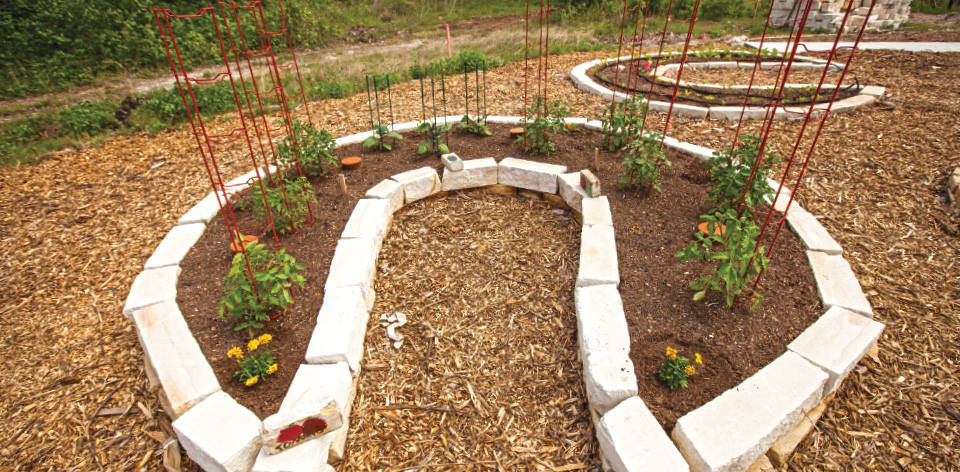What’s Good About Going Organic?

Growing up, I remember my parents being total health nuts. My dad often experimented with making his own protein bars to take to 5 a.m. gym workouts while my mom took the time to plan meals for the week ahead—all of which contained a variation of protein, fruits, and vegetables. Despite learning at an early age how necessary a healthy diet was, I didn’t pay much attention to the “organic” labels until adulthood, especially when the documentary “Food, Inc.” was released. Granted, it scared me into vegetarianism for a time (glad that’s over), but it opened my eyes to better farming practices.
Nowadays, the standards have been raised and more farms and food companies are striving to provide organic products.
But what actually is organic gardening?
Organic gardening is the method used to grow flowers, fruits, vegetables, and herbs without any pesticides, chemical or synthetic fertilizers, or genetic modifications. For many, it seems expensive and tedious, but in actuality this is the long-standing practice of growing that dates back hundreds of years. If you’re tending your own garden, you are in complete control! There are plenty of alternative, natural methods to pesticides as well as an ongoing list of reasons why organic is the healthier choice.
A couple reasons:
1. Organic fruits and vegetables have been proven to contain higher amounts of nutrients than non-organic fruits and vegetables. You don’t have to worry about ingesting chemicals, and the food tastes better.
2. It’s much better for the land. Natural practices are not destructive to the soil the food is grown in because it’s not contaminated with chemicals.
3. Nourished, rich soil churns out stronger plants. As an added benefit, if you are growing fruits and vegetables in your own garden, you’ll be able to taste the love and care you put into them. It’s a sense of achievement like no other, and knowing that you did it without the aid of anything funky makes it that much better.
Organic vs. Local
Think about it. Would you rather select USDA organic-labeled food that was flown in from Chile (on a plane that un-sustainably burned fossil fuels in the process) or buy produce that is technically organic and only had to travel a short distance to get to your farmer’s market?
My point: Try fixating more on purchasing produce from farms that adhere to healthy gardening practices rather than those products that have the “organic” label slapped on them. If you go to an Austin farmer’s market and notice some of the produce isn’t officially organic, don’t be so quick to dismiss it. The USDA organic label is expensive and takes time to obtain. As long as a farmer grows their food in or around the Austin area and follows sustainable farming practices, their produce is still a great go-to choice.
How do I know whether my garden is organic?
Your starting place should be with your soil. There is a great debate in the gardening world over whether soil like Miracle Gro qualifies as organic. There is a long answer to this topic (involving Miracle Gro’s ties with Monsanto, and Monsanto being the face of evil, and so on and so forth), but I’d like this column to remain light and fun, so I’ll defer from delving into this matter. My advice: when in doubt, do what’s natural. Speaking of natural, The Natural Gardener (naturalgardeneraustin.com) lets you come to their location off Bee Caves Road and shovel your own soil on-property. It’s an organic soil run and workout in one. An equally important contributor to the health of your garden is compost. Composting is one of the best things you can do for your garden. By doing so, you’re contributing to a circle-of-life kind of thing and, as a result, you’re keeping your waste out of landfills.
When your garden starts growing, it may attract a number of pests. Anything from aphids to squirrels can meddle in your garden, but you don’t have to resort to chemicals to keep them away from your goods. Not all insects are parasitic; some are actually highly beneficial. When using harsh pesticides, you kill all insects—both good and bad.
Personally, squirrels drive me nuts. (You didn’t think I’d go a whole article without making a corny pun, did you?) During the fall/winter season, squirrels aren’t much of a problem, but in spring/summer they wreak havoc. There are many home remedy deterrents; some say chili pepper spray works, others recommend using peppermint oil because squirrels hate the smell. The only problem is that these solutions require you to be very attentive when it’s rainy. The sprays work well on the aphids and will have to be your go-to as your garden grows, but squirrels are the real predators in the early growth stages. My suggestion: a makeshift fence. Build one and be rid of the critters. You can use anything from plastic fencing, to chicken wire, to mesh material to protect the perimeter of your produce. Heck, why not use all of them together? I’ve also been told that a fake owl statue will pose as a protector.
Gardening can seem like a waiting game. It can be tempting to get competitive with it and want to dump whatever you can find to help grow bigger plants, faster. But trust me, an organic garden will give you fruits and vegetables the way nature intended. Build your optimism and practice your patience by planting an organic garden.






